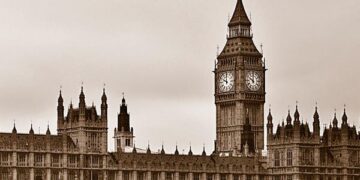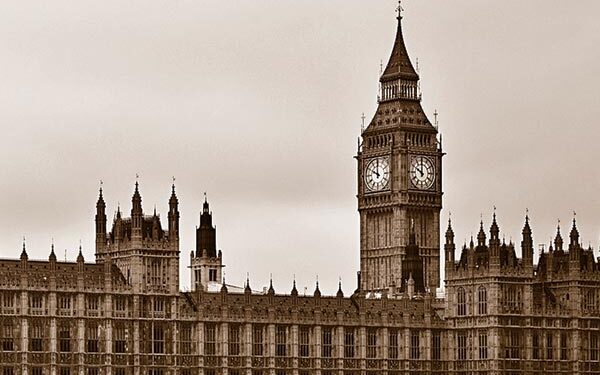The following are the excerpts of the proceedings in the House of Commons on the debate on Israel and Gaza
I made reference to the additional personnel who have moved to the region, but did not mention that several have been moved to Tel Aviv, Beirut and Jordan, all with the aim of protecting both British military personnel and British citizens in the region
Grant Shapps (Secretary of State for Defence)
FIRST, Mr Speaker, it is good to be at the Dispatch Box opposite the right hon. Gentleman. I thank him, as well as yourself and others, for their condolences when I was not able to attend the first Defence questions.
In terms of protecting our own personnel, I have asked the Chief of the Defence Staff to review their position. I made reference to the additional personnel who have moved to the region, but did not mention that several have been moved to Tel Aviv, Beirut and Jordan, all with the aim of protecting both British military personnel and British citizens in the region. We keep that matter under constant review.

John Healey
Would the Defence Secretary agree that over the past decade, there has been an international failure to pursue a Palestinian peace settlement and tackle the Hamas threat? Middle east escalation risks were not mentioned in the Government’s defence Command Paper update, nor were Hamas or Palestine. With threats increasing, is the Defence Secretary pursuing that defence plan in full, including further deep cuts to the British Army?
Grant Shapps
The right hon. Gentleman is right to say that nobody, including the Israelis, saw what Hamas were about to do coming. That points to the need for much greater surveillance, but also—much wider than that—the need to pursue the two-state solution, which is official British policy and is something that the world must do as this conflict, we hope, comes to an end. The answer to the right hon.
Gentleman’s question about being able to deploy British troops and, indeed, assets is that when I asked the question, the answer came back immediately: “Yes, we can do it, and there is more that we could do should we need to.” I am satisfied that we cut our cloth in order to react to events around the world, which of course came on top of what we are doing in Kosovo and elsewhere. We will certainly make sure that we maintain the resources to carry out those important missions.
DEBATE: UK arms sales to Israel
Kim Johnson (Liverpool, Riverside) (Lab)
WHAT assessment his Department has made of the potential impact of UK arms sales to Israel on (a) civilian deaths and (b) compliance with international humanitarian law in Gaza. (900146)
Grant Shapps (The Secretary of State for Defence)
All export licence applications are assessed on a case-by-case basis against the strategic export licence criteria. This Government will not use any export licences to any destination where applications are not consistent with the criteria.

Kim Johnson
I thank the Secretary of State for that answer, but since the horrendous Hamas attacks on 7 October, 12,000 innocent Palestinian civilians have been killed; and two thirds were women and children. The UN Secretary-General has described Gaza as a “graveyard of children”. Today an Israeli airstrike on a United Nations Relief and Works Agency school has killed 12 people. The Indonesian hospital in Gaza is currently surrounded by Israeli Defence Forces tanks. Can the Minister confirm whether arms sold by the UK have been used in violations of international humanitarian law, and will he explain why arms sales to Israel have not yet been suspended?
Grant Shapps
The hon. Lady is right to describe as terrorism the horrendous and heinous attacks by Hamas, without which this would not have started. We call on all parties—the Israelis included—to ensure that they act within international humanitarian law. It will interest her to know that our defence exports to Israel are relatively small—just £42 million last year—and, as I mentioned in my initial answer, they go through a very strict criteria before anything is exported.
















